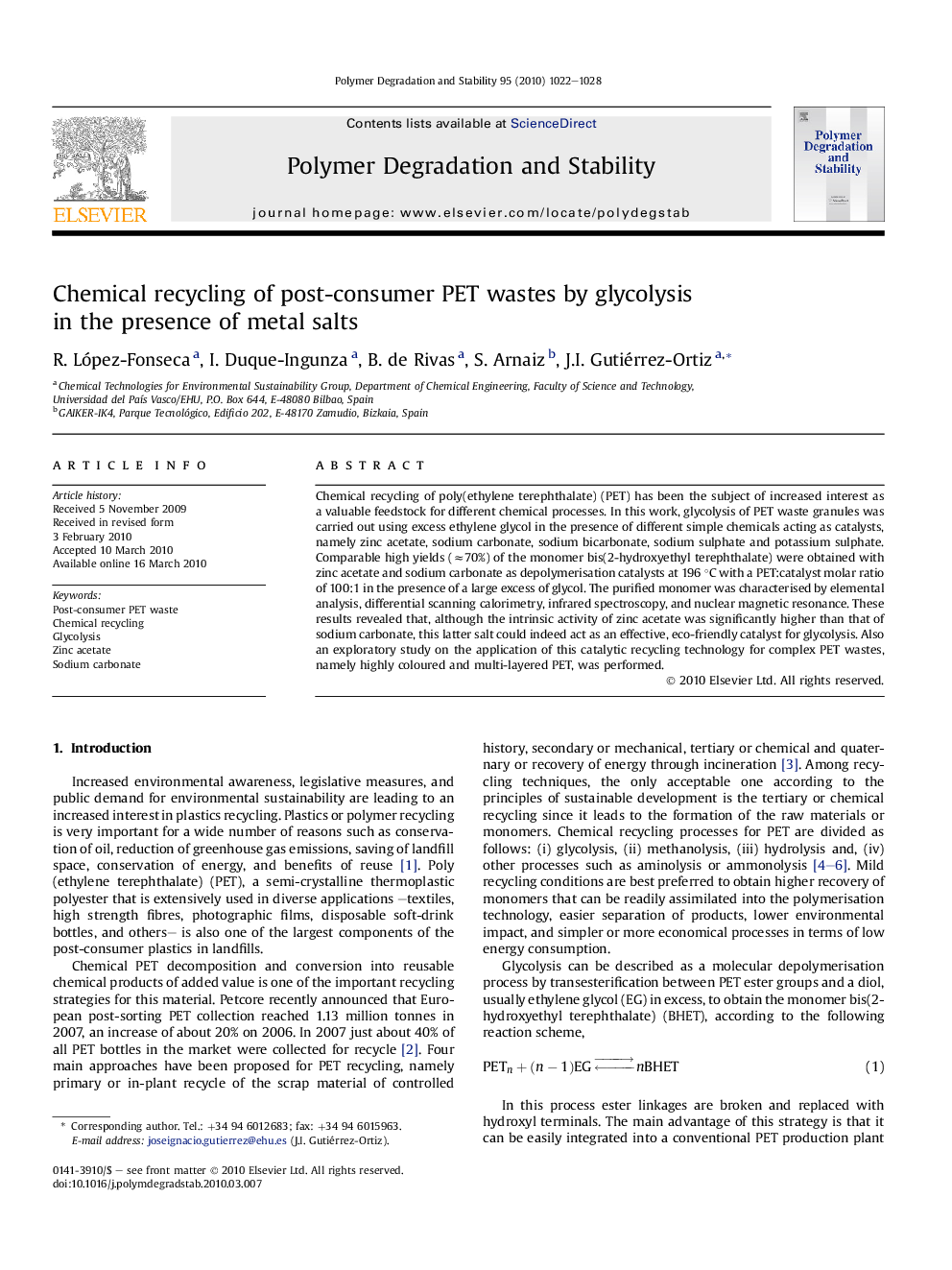| Article ID | Journal | Published Year | Pages | File Type |
|---|---|---|---|---|
| 5203853 | Polymer Degradation and Stability | 2010 | 7 Pages |
Abstract
Chemical recycling of poly(ethylene terephthalate) (PET) has been the subject of increased interest as a valuable feedstock for different chemical processes. In this work, glycolysis of PET waste granules was carried out using excess ethylene glycol in the presence of different simple chemicals acting as catalysts, namely zinc acetate, sodium carbonate, sodium bicarbonate, sodium sulphate and potassium sulphate. Comparable high yields (â70%) of the monomer bis(2-hydroxyethyl terephthalate) were obtained with zinc acetate and sodium carbonate as depolymerisation catalysts at 196 °C with a PET:catalyst molar ratio of 100:1 in the presence of a large excess of glycol. The purified monomer was characterised by elemental analysis, differential scanning calorimetry, infrared spectroscopy, and nuclear magnetic resonance. These results revealed that, although the intrinsic activity of zinc acetate was significantly higher than that of sodium carbonate, this latter salt could indeed act as an effective, eco-friendly catalyst for glycolysis. Also an exploratory study on the application of this catalytic recycling technology for complex PET wastes, namely highly coloured and multi-layered PET, was performed.
Related Topics
Physical Sciences and Engineering
Chemistry
Organic Chemistry
Authors
R. López-Fonseca, I. Duque-Ingunza, B. de Rivas, S. Arnaiz, J.I. Gutiérrez-Ortiz,
